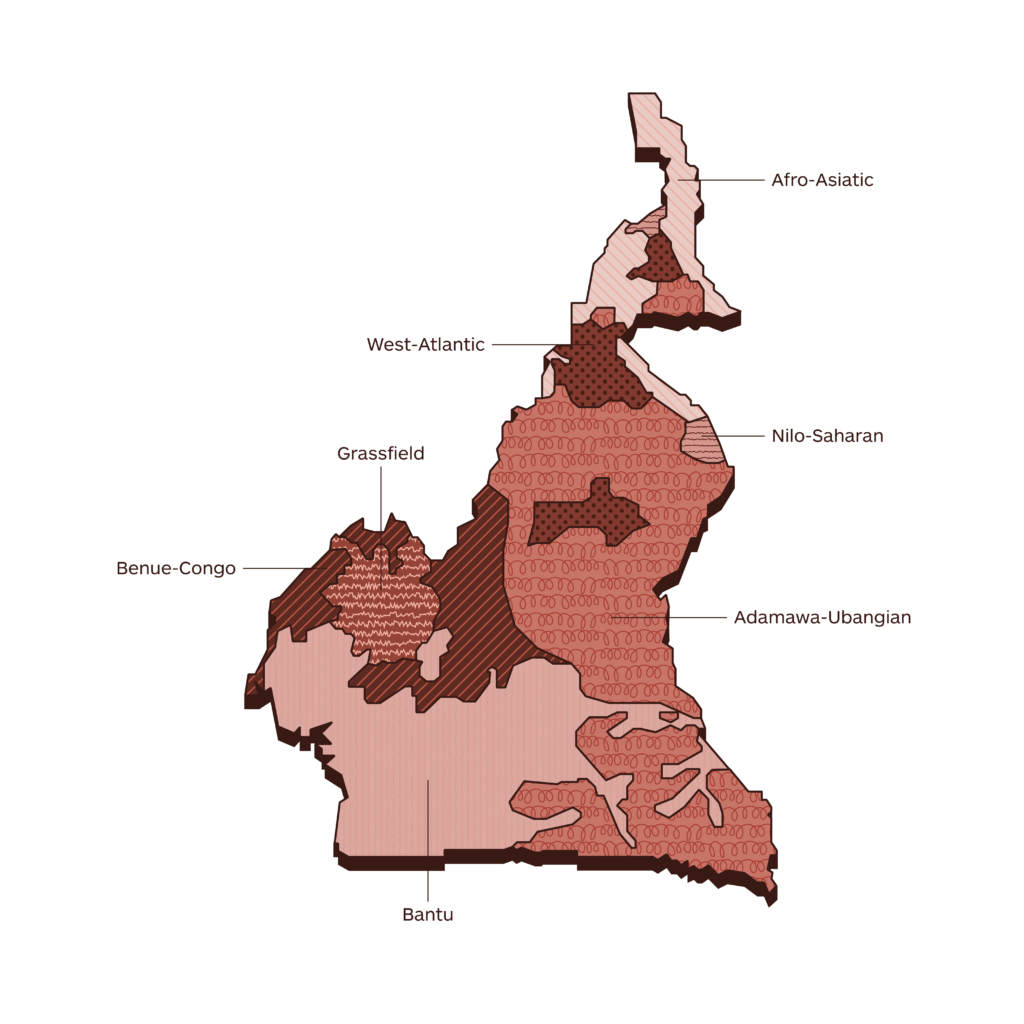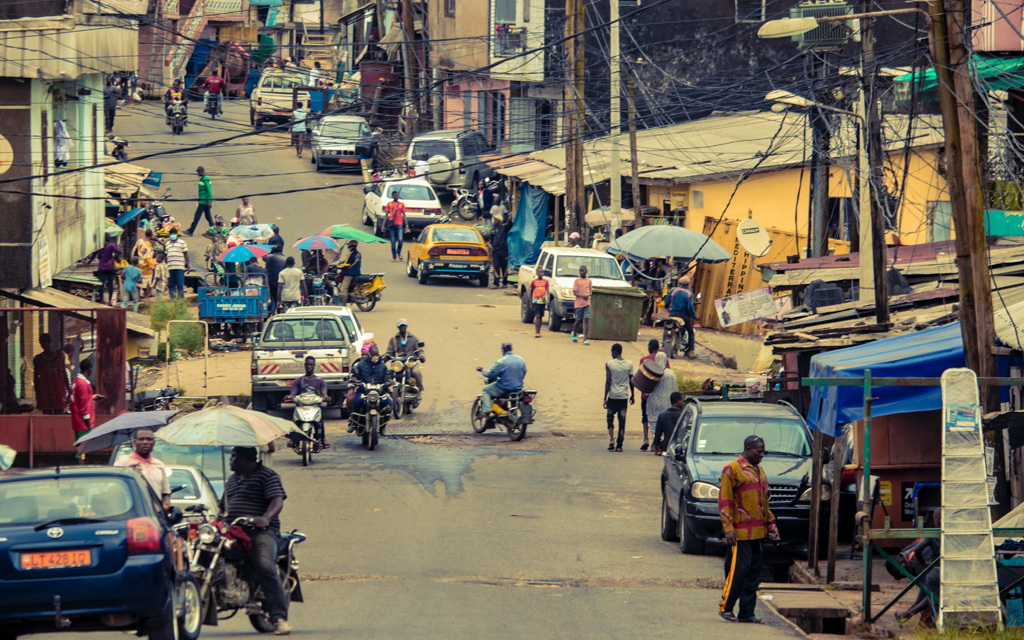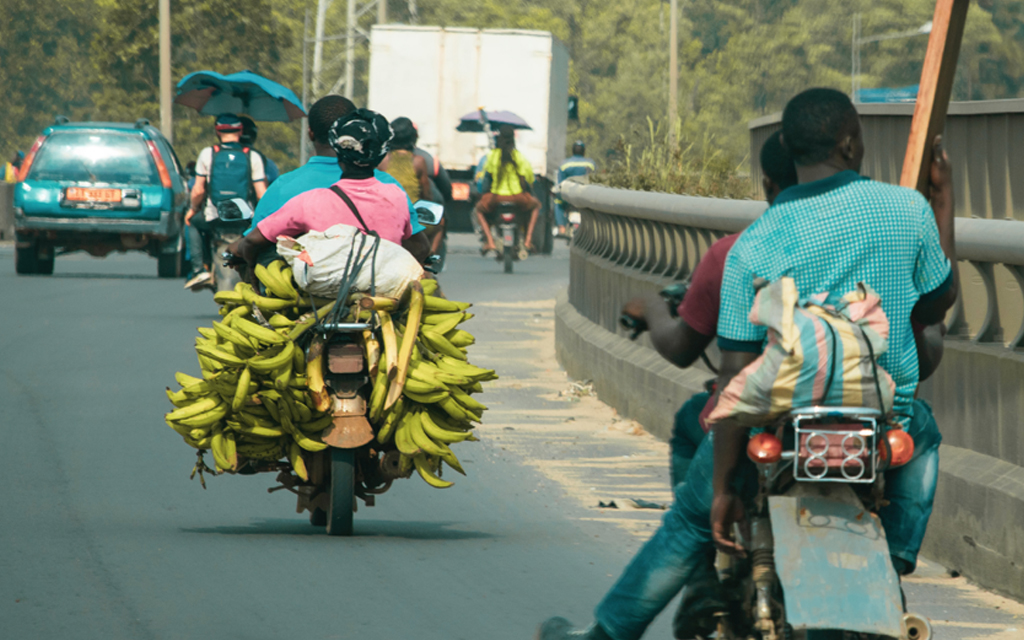Global Perspectives
One paradox of post-colonialism? In Cameroon, home to nearly 250 languages, instead of fighting for one of their mother tongue languages, people are fighting to assert the primacy of a colonial language. Imminent contributor since its birth, staff writer Emma Gamba has a degree in Politics, Philosophy and Economics and a master’s degree in Marketing, Analytics and Metrics.

The anglophone crisis
In Cameroon, home to nearly 250 languages, people are fighting to assert the primacy of a colonial language. The anglophone minority fights against the francophone majority. 20% of the 22 million inhabitants speak English as their main language and live in two regions: the Northwest (the main city is Bamenda) and the Southwest (the main city is Buea), both near the Nigerian border. In the rest of the country, the population speaks mainly French.
Cameroon was colonized by Germany in 1884. After Germany’s defeat in the First World War in 1919, Cameroon was divided in two parts: a large one in the east, French Cameroon, and a smaller one on the border with Nigeria, British Cameroon. The achievement of independence from France was in 1960 (from French Cameroon) and the achievement of independence from Great Britain was in 1961 (for British Cameroon). After that, a referendum was held in 1961. One part of British Cameroon decided to join Nigeria, while the other part decided to unit with French-speaking Cameroon. Since 1982, the president has been Paul Biya, one among the leaders who ruled the longest. He is francophone, as are most of the public administration employees. The constitution states that the country adopts both English and French as official languages with equal standing.

Imminent Annual Report 2021
Fit your business in global shape. Get your copy of Imminent Annual Research Report 2021. And let us know what you think.
Get your copy nowThe current crisis in the Northwest and Southwest regions of Cameroon started in 2016 when lawyers and teachers took to the streets of Buea and Bamenda to protest the domination of French in anglophone courts and schools. The anglophones of Cameroon, 20% of the population, feel marginalized. The situation got worse on 1 October 2017, when militant secessionist groups symbolically proclaimed – with the aim to remind – the independence of a new nation – including the two Anglophone regions –called Ambazonia. Some 20 separatist groups, including the Amazonia Military Forces (AMF), frequently clashed with the Cameroonian security forces in the NW-SW regions. In January 2017, in the anglophone region, the government denied Internet access for more than two months in reaction to the protests.
The impact of the war
2,763,000 people affected
738,000 people displaced
787,000 people in need
Source: ACAPS

Meanwhile, grave human rights violations and discriminatory treatment of anglophone civilians by the Cameroonian security forces are regularly reported and drive opposition against the government in the anglophone regions. The escalating conflict has brought untold misery to the population, according to Professor Tih Pius Muffi, director of the Cameroon Baptist Convention Health Services (CBCHS). Essential drugs have not reached hospitals, locals struggle to obtain food and also doing business in the two anglophone regions has become difficult. President Biya has called on separatist fighters to drop their guns and come out of the bush. But tensions remain high. Despite a call from the UN secretary general at the dawn of the COVID-19 crisis for a ceasefire, nothing has changed in the two anglophone regions, where gun battles continue unabated.
Parliamentary and municipal elections scheduled for 9 February 2020 have intensified an escalation of the anglophone crisis in Cameroon. On 7 January 2020, fighters from the Ambazonian separatist group burned down the Elections Cameroon (ELECAM) office in Misaje commune, Donga Mantung division in Northwest region (Journal du Cameroun 08/01/2020). The action was taken to reiterate their earlier decision not to participate in legislative and municipal council elections scheduled for 9 February 2020. This escalation of the anglophone crisis follows attempts by separatists to shoot down a commercial plane landing in the Northwest, and the abduction of around 40 candidates of the parliamentary and municipal elections in the Western region on 14 December.

Imminent Annual Report 2021
Fit your business in global shape. Get your copy of Imminent Annual Research Report 2021. And let us know what you think.
Get your copy nowThe Ambazonia Governing Council also instituted a 6-day lockdown (6–11 February) in the area which imposed a 24-hour restriction on movement, closure of schools, markets, and businesses. The lockdown led to residents stocking up on food, water and medical supplies. The governing council also informed humanitarian organisations and diplomatic missions to suspend all activities in the Northwest and Southwest during the lockdown, signifying a deterioration of humanitarian access to displaced and vulnerable populations in these regions. Concerns have been raised for the protection of 4 million people affected by the crisis, including the safeguard of life and property. The deteriorating situation reflects the limited success of Switzerland’s mediation efforts which began in June 2019 and was aimed at the granting of special status to the English-speaking regions by the Cameroonian parliament on 20 December 2019 (VOA 20/12/2019). The special status aimed at improving bilingualism and increased both the number of elected positions and the powers of elected officials in the English-speaking areas.
War Severity Index 2020
War Severity Index 2021
Access has deteriorated in the North-West and South-West (NWSW) regions where hostilities between Anglophone separatists and the government have heightened insecurities. The presence of both state security forces and non-state armed groups challenge the humanitarian space throughout these regions by imposing roadblocks, demanding exchanges for relief, and confiscating aid. Continued violence, poor roads, and lockdowns restrict the movement of people in the anglophone regions. Concern continues for the growing number of IDPs across the NWSW, who struggle to access basic services.
Source: ACAPS

HUMANITARIAN NEEDS
The closure of over 40% of the health centres and the escalation of the crisis because of the elections is likely to intensify the deteriorating health conditions for the over 4 million people living in the English-speaking regions. Outbreaks of diseases such as cholera have already been recorded at the end of 2019 (VOA 29/22/2019; Foreign Policy 27/09/2019). Currently, there are 13 hospital beds per 10,000 population.
EDUCATION
80% of schools have been shut down and over 600,000 children have been forced out of school since the crisis began in 2017. Students are forced to stay at home as their school buildings had been either burnt or converted to separatists’ camps. Forced school boycotts are also enforced by separatists in the English-speaking areas.
HUMANITARIAN AND OPERATIONAL CONSTRAINTS
Increased violence in the English-speaking regions has hampered humanitarian operations for the over 679,000 people internally displaced in Northwest and Southwest regions (UNHCR 30/12/2019). The ban on humanitarian activities during the lockdown period is likely to escalate access constraints. The setting up of checkpoints by both the separatists and BIR is expected to hamper humanitarian logistical arrangements. The Cameroon government’s attempt to play down the severity of the humanitarian conditions, and in some cases deny the existence of humanitarian needs, is likely to disrupt humanitarian activities in the Northwest and Southwest (Journal du Cameroun 30/12/2019).
REFUGEE RETURNS
At the beginning of January 2020, the Government of Cameroon concluded an arrangement with its Nigerian counterpart for the return of 700 repentant separatists, refugees, and asylum seekers by the end of February 2020 (Allafrica 03/01/2020). An escalation of the anglophone crisis in this election period would halt the potential return of the over 51,000 Cameroonian refugees in Nigeria.
Cameroon’s escalating Anglophone crisis shows little sign of abating. DW.
ACAPS. See the crisis Change the outcome.
Photo credit: Edouard Tamba, Unsplash
